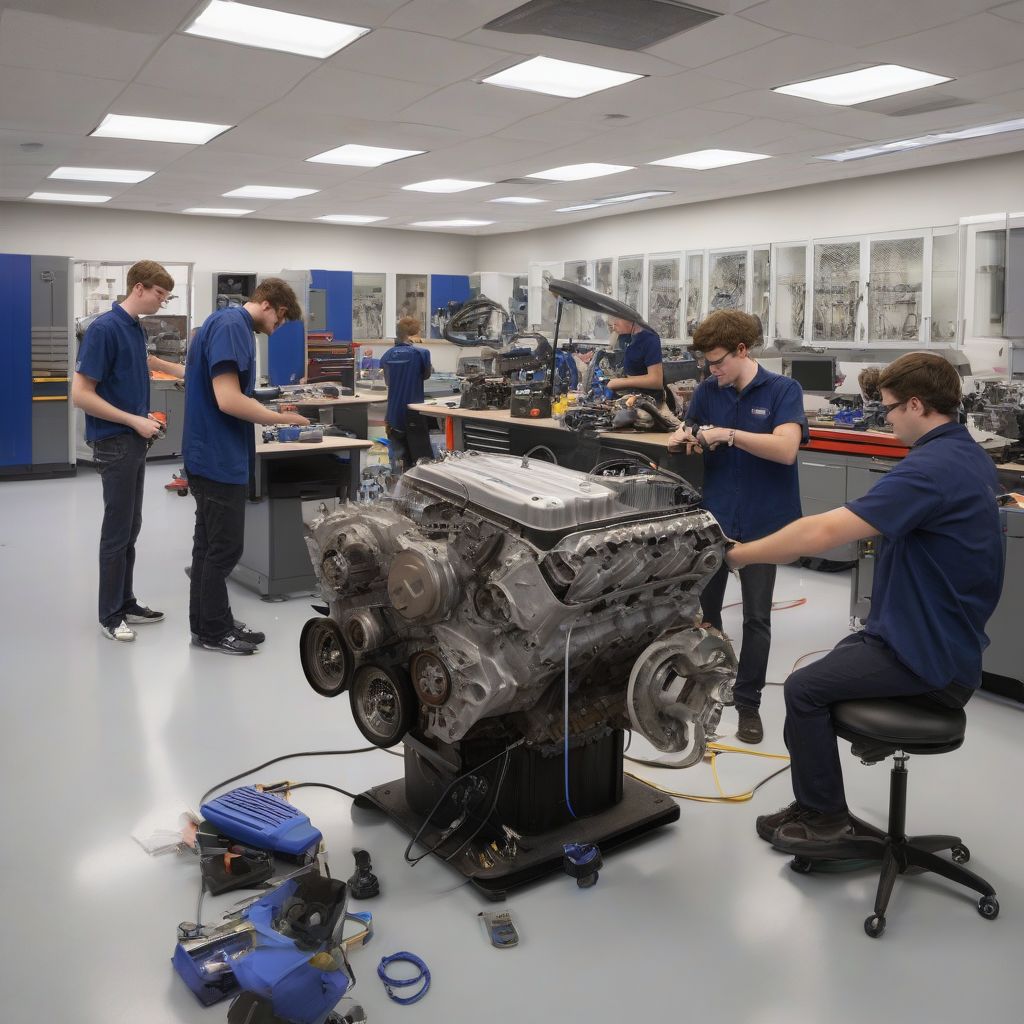The automotive industry is undergoing a revolution. Electric vehicles, self-driving cars, and advanced manufacturing processes are transforming how we design, build, and experience transportation. At the heart of this change are skilled engineers and technicians graduating from the Best Automotive Colleges. Choosing the right program can be the key that ignites a rewarding career in this dynamic field.
Why an Automotive Education Matters
Pursuing a degree or certification from one of the best automotive colleges goes beyond just learning about cars. It’s about developing a deep understanding of:
- Advanced Technologies: Mastering the complexities of hybrid and electric vehicle systems, autonomous driving technology, and cutting-edge manufacturing processes.
- Engineering Principles: Building a strong foundation in mechanical, electrical, and software engineering to design and analyze automotive systems.
- Problem-Solving Skills: Honing critical thinking and analytical skills to diagnose issues, troubleshoot problems, and develop innovative solutions in a fast-paced industry.
- Industry Connections: Gaining access to internships, co-op programs, and networking opportunities that can lead to exciting careers.
 Students working on a car engine in a modern automotive engineering lab
Students working on a car engine in a modern automotive engineering lab
What to Look for in the Best Automotive Colleges
Navigating the world of higher education can feel overwhelming. When researching automotive programs, consider these key factors:
- Accreditation: Ensure the program is accredited by reputable organizations like ABET (Accreditation Board for Engineering and Technology), which guarantees a high standard of education.
- Specialized Programs: Explore colleges offering degrees or concentrations in areas that align with your interests, such as motorsports engineering, automotive design, or autonomous vehicle technology.
- Faculty Expertise: Research the professors’ backgrounds and industry experience to gauge the quality of instruction and mentorship available.
- State-of-the-Art Facilities: Look for colleges with modern labs equipped with the latest automotive technology, including engine dynamometers, vehicle simulators, and CAD/CAM software.
- Industry Partnerships: Investigate if the college collaborates with automotive manufacturers or suppliers, offering internships, research opportunities, or scholarships.
FAQs About Automotive Colleges
Here are answers to some common questions aspiring automotive students often have:
What are the different degree options available?
You’ll find a range of programs, including:
- Associate Degrees: Provide a foundation in automotive technology, preparing students for entry-level technician roles.
- Bachelor’s Degrees: Offer a broader education in mechanical engineering with a specialization in automotive engineering, opening doors to design and engineering positions.
- Master’s Degrees: Allow students to specialize further in areas like electric vehicles, autonomous driving, or motorsports.
What are the career prospects after graduating?
Graduates from the best automotive colleges are in high demand, securing roles such as:
- Automotive Engineer: Design, develop, and test vehicle systems and components.
- Automotive Technician: Diagnose and repair mechanical and electrical issues in vehicles.
- Calibration Engineer: Fine-tune engine and emissions systems for optimal performance and compliance.
- Vehicle Dynamics Engineer: Analyze and improve the handling, stability, and ride comfort of vehicles.
- Autonomous Vehicle Software Engineer: Develop and test the complex algorithms that power self-driving cars.
Beyond the Classroom: Hands-On Experience
The best automotive colleges understand the importance of practical learning:
- Internships: Provide invaluable real-world work experience, allowing students to apply their knowledge and develop essential skills within industry-leading companies.
- Formula SAE/Formula Student: Joining these student design competitions offers a platform to design, build, and race formula-style cars, fostering teamwork, problem-solving, and engineering ingenuity.
- Research Opportunities: Participating in faculty-led research projects in areas like alternative fuels, vehicle electrification, or autonomous driving can deepen knowledge and open doors to advanced studies.
Making Your Decision
Choosing the right automotive college is a significant step towards a fulfilling career. Thoroughly research programs, visit campuses if possible, and envision yourself thriving in the learning environment. Your future self will thank you for the diligence and passion you invest in this exciting journey.


